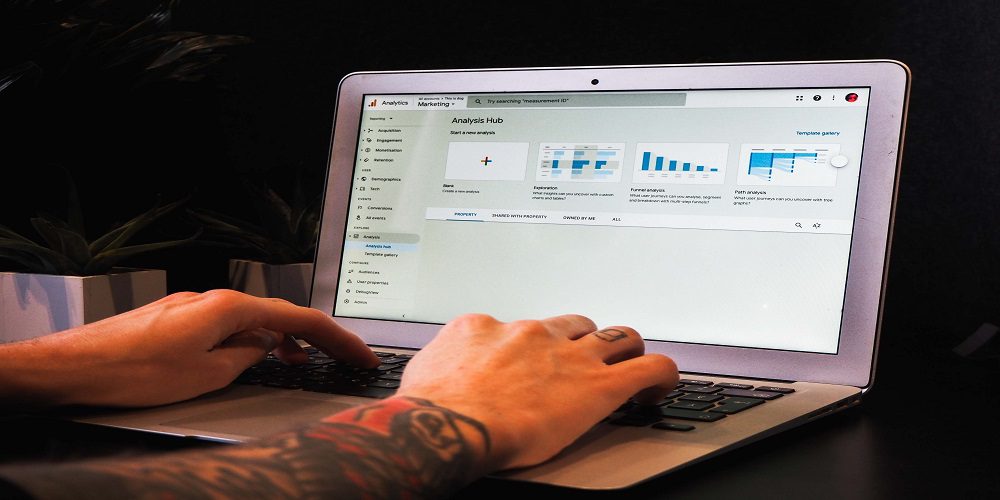Are you curious about the thrilling voyage of an SEO strategist? Brace yourself for a riveting account that takes you from the realms of keyboard research, through treacherous search engine algorithms, all the way to link-building triumphs. Join us as we unveil the extraordinary journey experienced by these digital pioneers in this captivating blog post: “From Keyboard Research To Link Building: The Journey Of An SEO Strategist”. Get ready to be enthralled.
Introduction to SEO Strategy
As an SEO strategist, I wear many hats. I am responsible for researching keywords, analyzing competitors, and developing link-building and content strategies. I also work closely with our developers to ensure our website is optimized for search engine visibility.
It all starts with keyword research. I use a variety of tools to identify the best keywords for our website. Once I have a list of potential keywords, I analyze our competition to see how difficult it would be to rank for those keywords. Based on my findings, I develop a keyword strategy that targets the most relevant and achievable keywords.
Once we have a solid keyword foundation in place, I start working on our link building strategy. My goal is to build high-quality links that will help improve our website’s search engine ranking. I also create content that is designed to attract links naturally. This includes crafting quality blog posts, infographics, and other types of shareable content.
Working as an SEO strategist is a challenging but rewarding job. It’s my responsibility to ensure our website is visible in the search engines and that we’re generating quality traffic from organic search results. By following a solid SEO strategy, we can achieve long-term success for our business.
How Does Research Help SEO Strategists?
As an SEO strategist, I’m always on the lookout for new research that can help me improve my strategies. I often find helpful insights in keyword research, user behavior studies, and even SERP features data.
But lately, I’ve been particularly interested in research that helps me understand how to build better links. After all, link building is still one of the most important ranking factors in Google’s algorithm.
And it turns out that there’s plenty of great research out there on link building! I’ve found studies on everything from the best types of links to build, to how to get links from high-authority websites.
This research has been invaluable in helping me fine-tune my link building strategies. And I’m sure it will continue to be a valuable resource as I keep working to improve my SEO efforts.
What is Link Building and Why Should SEO Strategists Prioritize It?
Link building is the process of acquiring backlinks from other websites to your own. Backlinks are incoming links to a website or web page. They are also called inbound links, inlinks, and inward links. A backlink is often symbolized by an anchor tag (<a>), which is the HTML element that contains the link.
Link building is important because it is a major factor in how Google ranks websites in its search engine results pages (SERPs). Google uses over 200 signals to determine where a website should rank, and backlinks are one of the most important signals. In general, the more backlinks a website has, the higher it will rank in Google’s SERP.
However, it’s not just the quantity of backlinks that matters – the quality of those backlinks is just as important. A backlink from a high-quality website will carry more weight than a backlink from a low-quality website. This is because Google wants to give its users the best possible experience, and part of that experience is finding relevant and authoritative websites when they perform a search.
So, if you’re an SEO strategist who wants to improve your website’s ranking in Google’s SERP, then you should prioritize link building as part of your SEO strategy.
How to Utilize Social Media Platforms for Link Building
As an SEO strategist, one of the most important things you can do is to build links. There are many different ways to do this, but one of the most effective is to utilize social media platforms. By creating and sharing content on social media, you can reach a large audience and generate natural backlinks. Here are some tips for using social media for link building:
1. Use hashtags: Hashtags are a great way to help your content be found by potential customers or clients. When creating content for social media, be sure to include relevant hashtags so that your post can be easily found by those who are searching for it.
2. Share helpful and informative content: One of the best ways to generate backlinks is to share helpful and informative content on social media. If your content is useful, people will be more likely to link to it.
3. Create infographics: People love visual information, so consider creating infographics to share on social media. Not only will this make your content more engaging, but it will also make it more likely to be shared and linked to.
4. Use social bookmarking sites: Social bookmarking sites like Digg and Reddit can be great places to share your content and build links. Be sure to submit quality content that is relevant to the site’s audience in order to get the most exposure possible.
Tools and Strategies for Measuring the Performance of a Link Building Campaign
There are a variety of tools and strategies that can be used to measure the performance of a link building campaign. Some of the most popular and effective tools include:
-Google Analytics: Google Analytics is a free tool that can be used to track website traffic and conversion data. It can be used to track the performance of your link building campaign by monitoring the number of visitors that come to your site from links that you have built.
-Majestic SEO: Majestic SEO is a paid tool that provides detailed information about the backlinks pointing to your website. It can be used to track the progress of your link building campaign by monitoring the quality and quantity of links that you are building.
-Ahrefs: Ahrefs is a paid tool that provides detailed information about the backlinks pointing to your website. It can be used to track the progress of your link building campaign by monitoring the quality and quantity of links that you are building.
-Open Site Explorer: Open Site Explorer is a free tool from Moz that provides data about inbound links pointing to a website. It can be used to track the progress of your link building campaign by monitoring the quality and quantity of links that you are building.
Conclusion
From keyword research to link building, SEO strategists have a lot to consider when creating an effective strategy that will give their clients excellent results. It is important for SEO strategists to stay up-to-date on the latest trends and techniques so that they can create campaigns that are tailored for each individual client’s needs. With hard work and dedication, an SEO strategist can become an expert in this field and help their clients find success online.



































